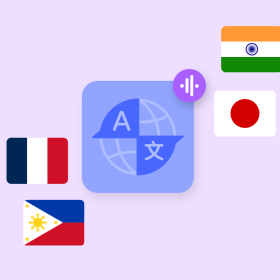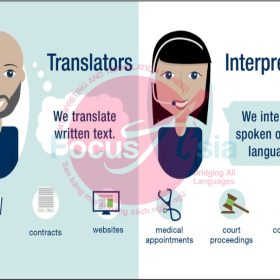HI TRANSLATOR-TO-BE! THINGS TO KNOW ABOUT TRANSLATION JOB
Are you a fresh language graduate? Do you find it difficult when starting out as a newbie? Are you overwhelmed realizing that reality does not simply assemble what you have learned at school? Here are a few tips that you, as a translator-to-be, may want to know before getting started with a translation job:
1.Understand your true capability
Be honest and identify how good you are as a translator. Are you fluent in the source language and the target language? Do you have knowledge in the field you are translating? Are you confident in your capability? Can you compete with other translators with many years of experience? Do not take a work that you know is not suitable for you just because you are afraid of not receiving any work. This not only takes too much of your time to spend on what you are really good at, but also results in lower-quality final product.
2.Make sure you meet the set deadline
Nothing is more frustrating for a client than a missed deadline, since it affects the whole progress of the project, which can lead to a huge loss for their business. Do not promise what you cannot give, otherwise it will create a tremendously bad image for you. Estimate an ample time to finish everything, including translation, proofreading and editing. If this is your first project and the deadline set by the client is not achievable, do not force yourself. On your further translation career, make sure you never miss a deadline. In a rare case you cannot meet the deadline for some reason, alert the client as soon as possible so they can find an alternative. However, ensure it is not repeatable.
3. Do not be afraid to communicate
Being a translator, there are times you find ambiguity in the text or a passage you do not understand, conduct a research, seek for advice from someone with expertise and/or contact the client for clarification. Even if you find a reference but still unsure, do not guess. Only by understanding the text can you translate it correctly, and accuracy is the core value of a translation document. An incorrect translation is worthless.
4.Set high standards for your final product
Do not compromise with yourself in producing anything less than your best effort. Only quality translations invite quality clients. Most clients will not tell you when they do not like your work. But they will not contact you again; even worse, they can tell their contacts that you do not offer good work. Consequently, you will lose a big deal of valuable opportunities just because you did not put enough attention to your work. Always proofread your translation carefully and do not forget to format it neatly before submitting your end product to your client. Your final work must be at its best.
5.Do not charge too low rates
Just because you are a beginner does not mean you should be paid lower than the current rates. A common excuse for a newbie to charge low rates is that he/she will not get any work otherwise. Another is lacking information of the real market or negative advice from someone. If you are confident in your ability, do not sell your work and time too cheap. A quality agency is always willing to pay for a quality work. Besides, setting your rate remarkably lower than the going one may make the client question the value of your work.
6.Prepare to work hard
As a beginner, it may take a lot of time before you can prove your talent and acquire a good translation job or gain regular customers. Do not feel discouraged if you send your CV to dozens of different companies and receive no work. A professional translator shared that she had contacted more than 400 prospective clients during her first year of business. It usually takes a year for a beginner to establish himself. Hence, be patient, good things take time.
7.Never stop improving your skills and knowledge
Being bilingual does not mean you are a good translator. In order to advance your translation career, you must prepare yourself with plenty of skills and have your skills improved and updated along the way, given the fast changing business scenario nowadays. Precious skills for a translator also include writing and computer (MS Word or similar). Translators also need good knowledge in the field needing translation, or of the cultures of both the source language and the target language.
In summary, being a translator does not mean receiving an offer and accepting it immediately. It takes several steps before you can make your final decision. Once accepting the job, you commit to the responsibility of delivering a quality product on time. Give the job all your best and for sure you will get quality clients in the future.




















